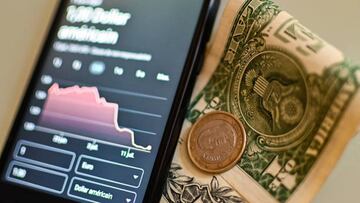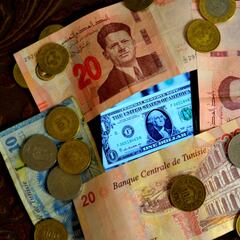Dollar exchange rate with major currencies and crude oil prices today, 17 July
The stong dollar and weakened European economies could make overseas travel cheaper this year after two summers of covid-19 restrictions.


For the fist time since the early 2000s, the dollar reached parity with the euro this week after a period of sustained gains on the Eurozone currency. The slump was brought about by a combination of factors that have strengthened the dollar internationally and caused concern about Europe’s economic stability.
While the the White House is under pressure to address inflation, things appear even more fraught on the other side of the Atlantic where the fallout of Russia’s invasion of Ukraine has decimated continental supply chains. Nations like Germany, which boasts Europe’s largest economy, are particularly reliant on Russian-produced oil and gas and are suffering from the sanctions imposed on the Kremlin.
The likelihood of some of Europe’s major economies, such as Germany and Italy, falling into recession is becoming greater despite record inflation being reported around the world.
On Tuesday Robin Brooks, chief economist at the Institute of International Finance, tweeted: “What’s the fall in the Euro saying? It’s becoming increasingly clear that the Euro zone is heading into recession.”
However these global pressures have actually made summer travel more affordable for Americans as the dollar gains against other currencies. Investors seeking a safe haven tend to sell their positions for the world’s reserve currency, the dollar, propping up the value.
Why is the euro suffering so much?
The value of the euro is thought to have fallen in part due to the announcement that the United States was running at a staggeringly high 9.1% in June. One consequence of this is that the US’ Federal reserve may be forced to further increase interest rates in a bid to cool the overheating economy.
If it were to do so, and interest rates in the US were to rise more swiftly than the European Central Bank (ECB) does, then investors would likely favour investments in dollar denominations. Interest-bearing investments would provide higher interest returns that euro-domination positions, encouraging an influx of cash into the dollar markets.
Many are citing euro-dollar parity as a historic mark on a graph, but @jonsindreu explains the currency is likely to fall even more #WSJWhatsNow https://t.co/gkTnXNoahz pic.twitter.com/lWLSOL9j7w
— The Wall Street Journal (@WSJ) July 14, 2022
The ECB has signalled that it will announce an interest rate hike next week, and potentially another in September, but with recession fears in Europe it may not be able to introduce a rise as significant as the US. This could widen the rate gap and push more investors towards the dollar.
US dollar exchange rates
| Currency | One Dollar Buys |
|---|---|
| Euro | 0.991 |
| British Pound | 0.843 |
| Indian Rupee | 79.780 |
| Canadian Dollar | 1.304 |
| Swiss Franc | 0.977 |
| Japanese Yen | 138.534 |
| Chinese Yuan | 6.757 |
| Mexican Peso | 20.558 |
Economic slowdowns driving slump in price of crude oil
While a strong dollar is good news for those who plan to travel abroad this summer, the cost of flights is less appealing for holiday-makers. Gone are the incredibly cheap deals available during the pandemic with prices up by around 34 percent on last year. This has been due to rising demand and compounded by the rising cost Russia invaded Ukraine and Western nations imposed sanctions on energy exports from the aggressor.
Some advocates urged the president to use the moment to declare a national climate emergency and reinstate a ban on crude oil exports, among other steps. But Biden has not offered details about his plans. https://t.co/babc6w6r38
— The Associated Press (@AP) July 16, 2022
In March Brent crude peak at just below $135 and West Texas Intermediate (WTI) came close to $124. As fears grow of recessions in advanced economies and covid prompting a potential slowdown in China the price of oil has slid toward the $100 per barrel mark, falling below it on Tuesday.
Related stories
However both Brent and WTI have seen gains in the days since, and the former has bounced back above the $100 mark.
Here is where the prices stood at the end of trading on Saturday...
| Producer | Price Per Barrel |
|---|---|
| Brent Crude | $101.16 |
| WTI Crude | $97.59 |

